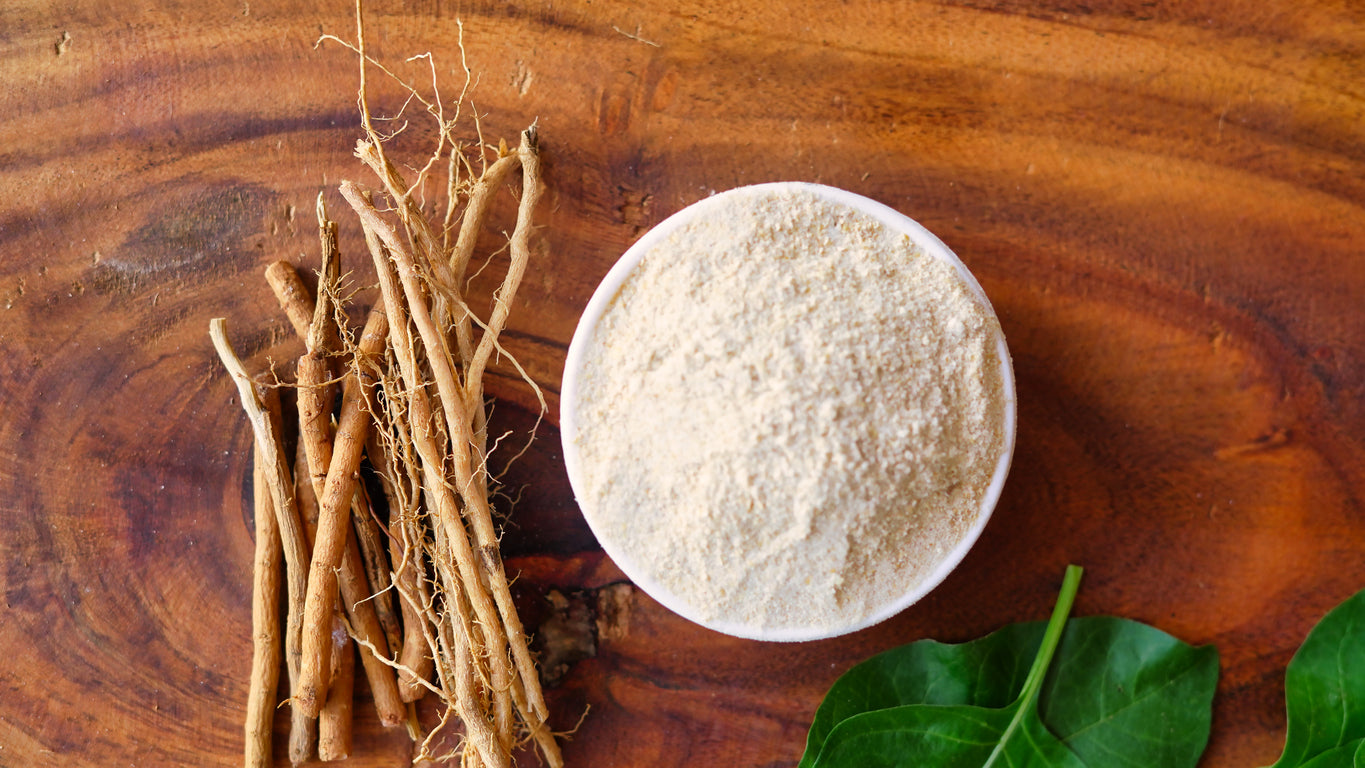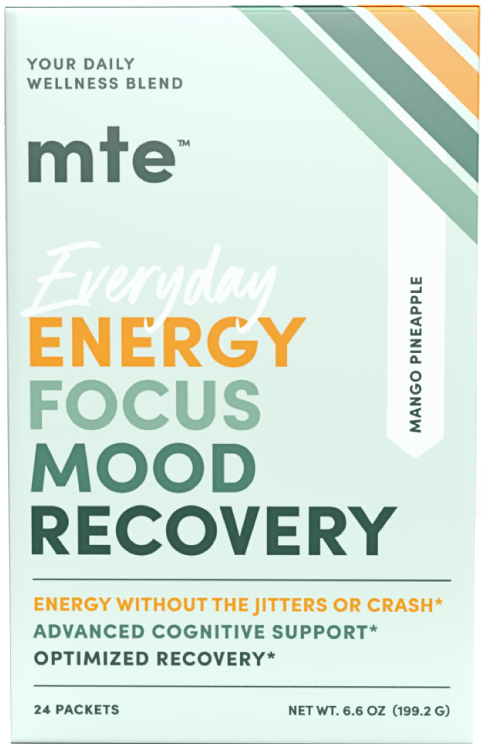
Does Science Support Ashwagandha as the MVP of Adaptogens?
There’s no shortage of health and food studies on ashwagandha. It’s one of the most well-known medicinal plants with one of the longest histories, and it’s one of the only plants in Ayurvedic medicine that was a standalone tonic for a host of ailments. With so much established evidence, research on ashwagandha remains invigorated, which also means it’s hard to keep up with all the new studies! Where to look? What to look for?
Good thing some of us high-key live inside peer-reviewed articles. MTE found a recent meta-analysis reviewing all the literature on ashwagandha up through 2024. For everyone’s convenience, we’ve summarized the findings, and then added a little bonus looking at the future of research on this crazy-old, crazy-cool adaptogen.
TL;DR: Summarizing of a Summary of Scientific Studies
The review looked at the mechanisms and health benefits of ashwagandha and then discussed its role in sports performance. Some of the benefits they focused on included anxiety, body fat, metabolic health, endurance, power, recovery, strength, muscle mass, fertility, and aging. Key takeaways from the studies reviewed included:
Sleep Observations
Ashwagandha reduced time to fall asleep and improved sleep duration after caffeine-induced insomnia. It increased time spent in REM and deep sleep stages. Positive effects increased with dosage, and positive effects were greater in subjects with insomnia than those without. The mechanism by which it accomplishes this is preventing the activity of GABA receptor antagonists (i.e. things that prevent GABA from performing its normal roles).
Stress & Mood
Ashwagandha reduced morning cortisol levels in subjects under high stress. This was reflected in biomarkers and perceived stress. Ashwagandha also showed an ability to balance mood, decreasing anxious feelings and improving low affect. It accomplishes these things by modulating the HPA axis, which controls your body’s stress response. As well, its ability to support sleep contributes, as quality sleep reduces stress.
Inflammation
A whopping 28 studies showed ashwagandha prevents reduction of and/or augments production of the brain’s main cellular antioxidants, repairing inflammatory and neurotoxic effects of oxidative stress. Ashwagandha increased total antioxidant capacity and decreased inflammation biomarkers. The mechanisms are not well understood, but we do know that systems managing sleep, stress, mood, inflammation, and immunity all engage in cross-talk.
Hormones
We already discussed the findings for Ashwagandha’s effects on cortisol and GABA. But it also affects testosterone levels. It increased testosterone levels in subjects without hormonal imbalances, and it significantly increased testosterone levels in subjects who participated in strength training. The underlying mechanisms may be in part due to sleep support, as sleep health is directly tied to high cortisol and low testosterone.
Sports Performance
Ashwagandha supplementation was effective at improving aerobic capacity and performance in healthy adults and elite athletes. Ashwagandha increased lifting strength and power and velocity and power of vertical jumps. It also decreased muscle fatigue and improved perceived recovery. There are very few studies so far, so mechanisms are not well understood here, either.
Body Composition
Ashwagandha enhances desirable fat/muscle ratios that result from strength training. It also suppressed weight gain and improved energy levels in subjects with high-fat diets, effectively preventing obesity. This is likely an indirect effect. Sleep health is directly correlated with the proportion of fat reduction vs muscle gain during weight loss. Stress and sleep, correlated with cortisol and testosterone, are major influencers of body composition, ease of weight gain, and difficulty losing weight. Evidence of this interplay was seen when ashwagandha supplements suppressed food cravings in chronically stressed adults.
Where’s Ashwagandha Research Headed to Next?
Two interesting studies dropped in early 2025, and they’re pointing toward a big expansion in ashwagandha research. Will the peer review process eventually come to the same conclusion as the whole world did several thousands of years ago? Probably. But at least we’ll have a bunch of cool charts and calculations about it.
Ashwagandha May Fight Resistant Infections & Skin Aging
The first study looked at ashwagandha in the context of treating infection and disease. There are certain pathogens referred to as the ESKAPE group, which is an acronym for the scientific names of the major culprits. Basically, some nasty bacterias can build a biofilm that serves as a protective layer. This makes them resistant to immune response and treatments like antibiotics.
This study observed ashwagandha inhibit the growth and structure of biofilm by nearly 60%. Along with that, it reduced activity of two major skin aging enzymes by over 30%. You can be sure that there will be a host of studies that follow; these findings have major implications for treating resistant infections and slowing skin aging.
Genetic Diversity May be Ashwagandha’s Best-Kept Secret
The second study was the first to explore the genetic diversity of ashwagandha populations, which it then tied back to implications for medicinal and agricultural practices. It used a novel model to track genetic structures and variations. They found an average of 94% of all the genetic diversity in ashwagandha is found within populations, not between.
Gaining more insight into this new finding will allow for more targeted approaches to cultivating the plant. If people can pick and choose the levels of various compounds in this adaptogen, much like balancing a soundboard, they can then create the ideal ashwagandha for intended applications, whether it’s infectious diseases, stress, or any of its other many talents.
MTE’s Conclusion
We’re just happy that our research rabbit hole on this key ingredient in our daily wellness blend will continue to get deeper. Because it’s not an obsession and we’re totally fine. Speaking of, for more on the history, science, and uses of ashwagandha as an adaptogen, check out our other articles:
-
Understanding Ashwagandha: from Ancient Ayurvedic Medicine to Modern Health & Wellness
-
Holistic Energy Drinks with Ashwagandha Instead of Caffeine? Yes, Please!
-
Ashwagandha & Angst: Can This Adaptogen Support Against Stress?



